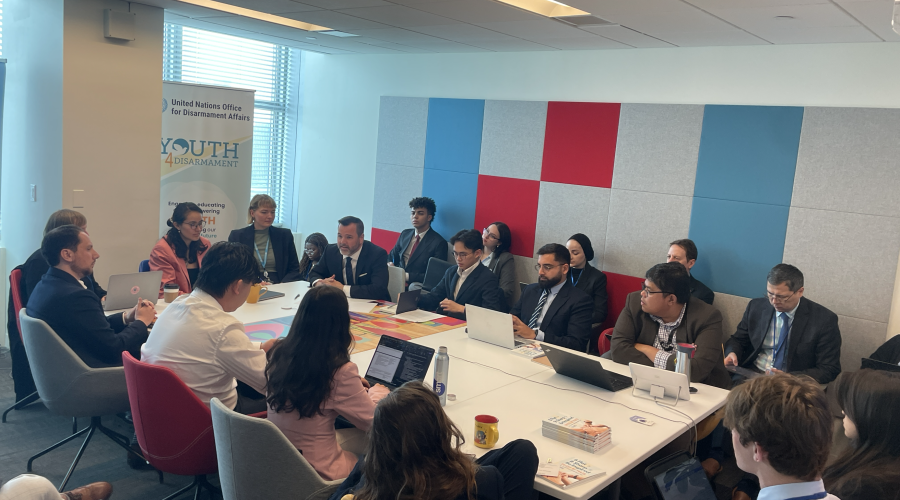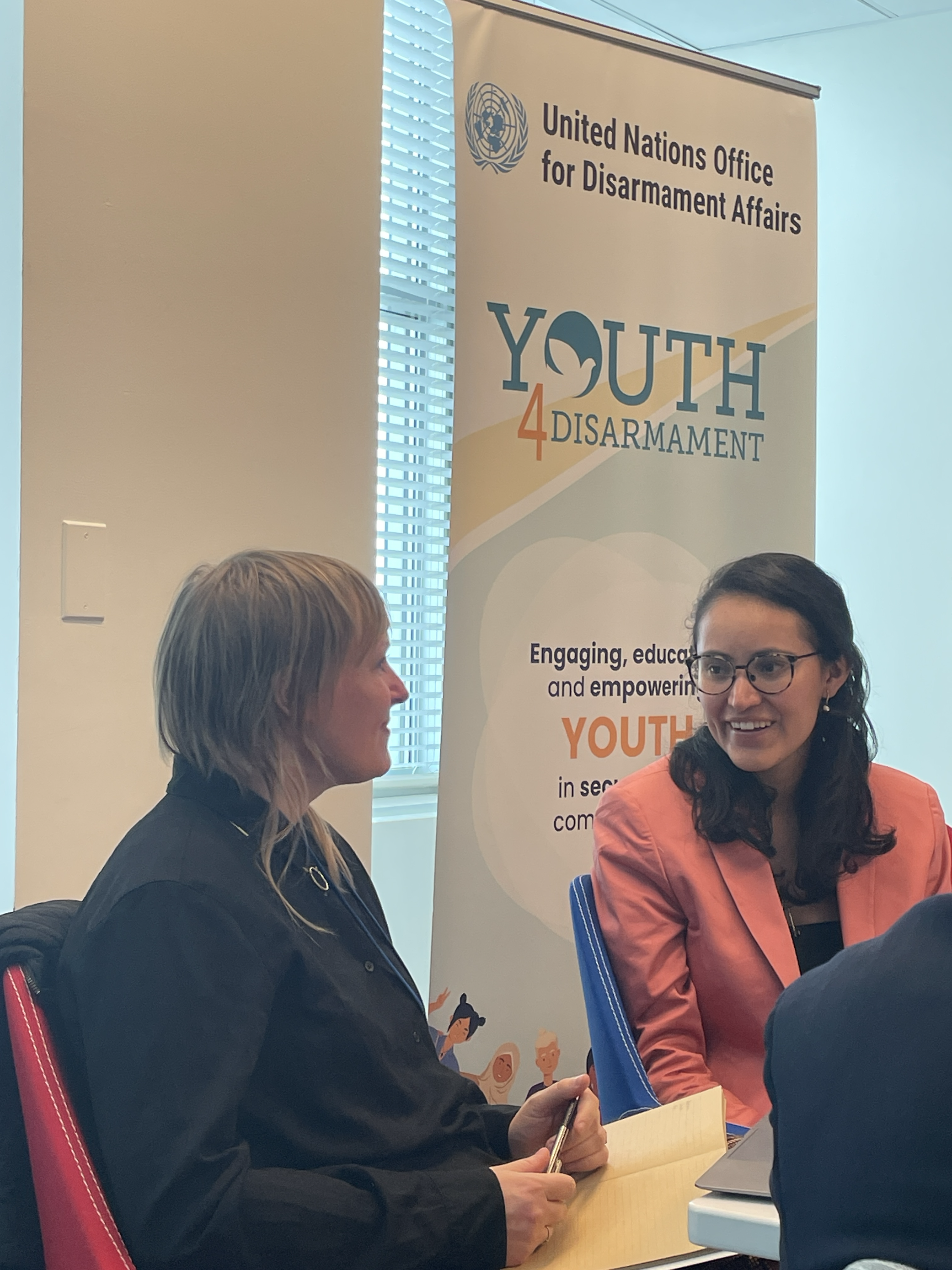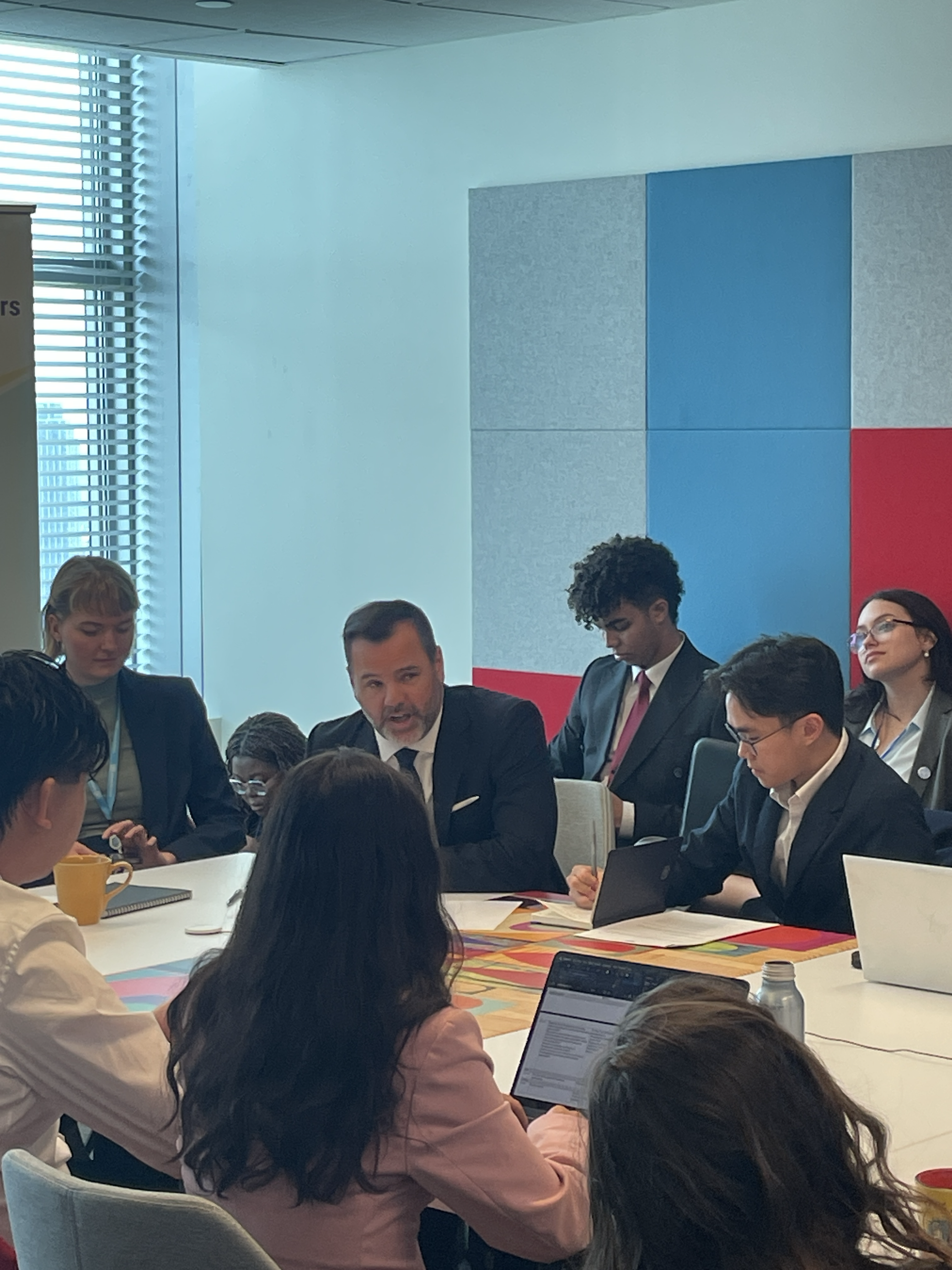News story
Securing the Future: Youth Perspectives on Increasing Military Expenditure and Sustainable Development

The UN Office for Disarmament Affairs (UNODA) organized a ECOSOC Youth Forum side event on “The Impact of the Global Increase in Military Expenditure on the Achievement of the Sustainable Development Goals” on April 15, 2025. Young people from around the world came together to discuss the increase in military spending and to reflect on its implications for their lives, communities, and the future they envision.
The panel of speakers consisted of:
- Sébastien Lapierre, Conventional Arms Branch UNODA
- Eduardo Sanchez, Permanent Mission of Mexico to the UN
- Emma Bjertén, Reaching Critical Will – Women's International League for Peace and Freedom (WILPF)
- Mariana Roa, Youth4Disarmament Alumna
- Nan Tian, Stockholm International Peace Research Institute (SIPRI)
- Leonie Hopgood, Conventional Arms Branch UNODA, as the moderator.
In 2024, global military spending reached $2.7 trillion, rising 9.4 percent from 2023, the steepest year-on-year rise since at least the end of the cold war. Meanwhile, the latest Sustainable Development Goals report revealed that only 17% of sustainable development goals' targets are on track, and half are making only minimal progress.
The reality of the situation and the newest figures and trends were laid out by Nan Tian from SIPRI with Eduardo Sanchez from the Mexican mission sharing country specific perspectives. Both addressed that while conflicts around the world are at an all-time high and all countries need to spend on their security priorities, the lack of transparency on national military spending creates challenges.

Emma Bjertén of WILPF highlighted how armed conflict and militarism fueled by high expenditures negatively impacts all sectors of society—at the cost of citizens. She further explained how military expenditure can facilitate gender-based and sexual violence, destabilize communities, cement power imbalances, and cause environmental contamination, which makes once-fertile lands unsafe to cultivate or live on. The precedence, therefore, must shift from arms buildup to the creation of human security through diplomacy, cooperation, redistribution of resources, and environmental protection.
Military spending can take up a large portion of a nation's GDP and divert much needed government funds. Although the participants agreed that national security is important, many voiced concerns about how the ever-increasing military budgets are siphoning off funds from areas such as education, health, and environmental protection. These are essential commodities for youth and the development of their communities. The youth participants expressed that increased investment in military technology could contribute to achieving the SDGS, particularly when advancements are shared with the broader public through dual-use technologies. However, Nan Tian noted that historically, the military has often benefited more from civilian-driven dual-use innovations than the other way around. Participants emphasized the need to balance military spending with comparable investments in essential public services such as healthcare, education, infrastructure, social protection, and environmental sustainability.

Young people are calling for diplomacy and equal opportunity across the board. They are the changemakers and the voice of their generation, their experiences shape how they will conduct themselves in the future global system. ODA’s Youth4Disarmament alumna Mariana Roa raised concern about the consequences of rising military expenditure for her generation. She stated that while security is a fundamental prerequisite for development, it cannot sustainably serve society if it comes at the expense of critical investments in other essential sectors. Military expenditure does not always generate long-term sustainable development, or growth. It is often not inclusive or diverse.
During the discussion it became clear that young people did not see the benefits of increased military spending in their lives. Communities remain underserved, education systems are underfunded, and job prospects after graduation are bleak. Youth delegates called for a shift from military-focused security to human-centered security, emphasizing the need to equip future generations with the tools to achieve peace and sustainable development.